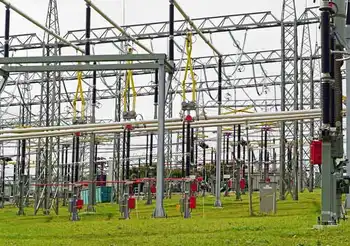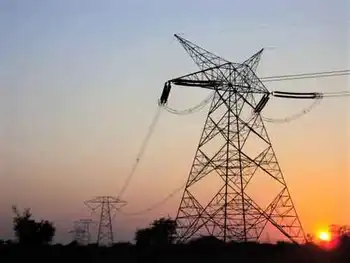Duke seeks funding to accelerate smart grid
The company also applied for an additional $14 million in federal funds for smart grid transmission lines and demonstration projects in North Carolina and South Carolina.
Duke Energy submitted its applications to the U.S. Department of Energy, which will award $4.5 billion in smart grid grants nationwide as part of the economic stimulus and infrastructure bill passed by Congress and signed into law by President Obama earlier this year.
Duke Energy plans to convert its entire electricity-delivery infrastructure into an advanced, state-of-the-art smart grid.
The federal funds would allow the company to complete much of its smart grid work in Ohio and Indiana by late 2012 — two years earlier than originally planned.
Essentially an "energy internet," the smart grid will use two-way digital communication to improve energy efficiency, bolster system reliability and detect power outages — as well as integrate renewable energy into the grid and reduce carbon emissions.
"We intend to transform the way electricity is delivered to, and managed by, our customers," said Todd Arnold, senior vice president for smart grid and customer systems at Duke Energy, America's third-largest electric utility. "Our goal is to replace today's non-interactive electric grid with a highly interactive two-way communication grid that uses advanced digital technology."
In Ohio, Duke Energy soon will launch a mass deployment of smart grid technology, including more than 700,000 electric smart meters and 450,000 natural gas smart meters at customers' homes and businesses.
The new digital smart meters, capable of two-way communication between customers and the utility, will replace the traditional meters that have been the industry standard for decades.
In Indiana, Duke Energy is seeking approval from the Indiana Utility Regulatory Commission to install approximately 800,000 smart meters.
In addition to smart meters, Duke Energy plans to install power-line automation — both hardware and software — to improve efficiency and reliability on its electric grid in Indiana, Ohio and Kentucky.
The company also is laying the groundwork to bring large-scale smart grid technology to two other states it serves — North Carolina and South Carolina.
"Our smart grid will create a two-way digital link between us and our customers, allowing us to operate more efficiently and helping our customers better manage their electricity consumption, eventually using electronic home energy management devices," Arnold said.
Duke Energy's smart grid also will facilitate the eventual widespread adoption of plug-in electric vehicles, as well as potential new variable pricing options for electricity.
"Our smart grid will be among the most comprehensive in the electric utility industry," Arnold said.
Duke Energy's smart grid communications architecture will be based on what the industry calls "internet protocol-based open standards" — an approach that permits easy accommodation of new and emerging communications technology as it becomes available in future years.
Related News

COVID-19: Daily electricity demand dips 15% globally, says report
LONDON - The daily demand for electricity dipped at least 15 per cent across the globe, according to Global Energy Review 2020: The impacts of the COVID-19 crisis on global energy demand and CO2 emissions, a report published by the International Energy Agency (IEA) in April 2020.
The report collated data from 30 countries, including India and China, that showed partial and full lockdown measures adopted by them were responsible for this decrease.
Full lockdowns in countries — including France, Italy, India, Spain, the United Kingdom and the midwest region of the United States (US) — reduced this demand for electricity.
Reduction in…




